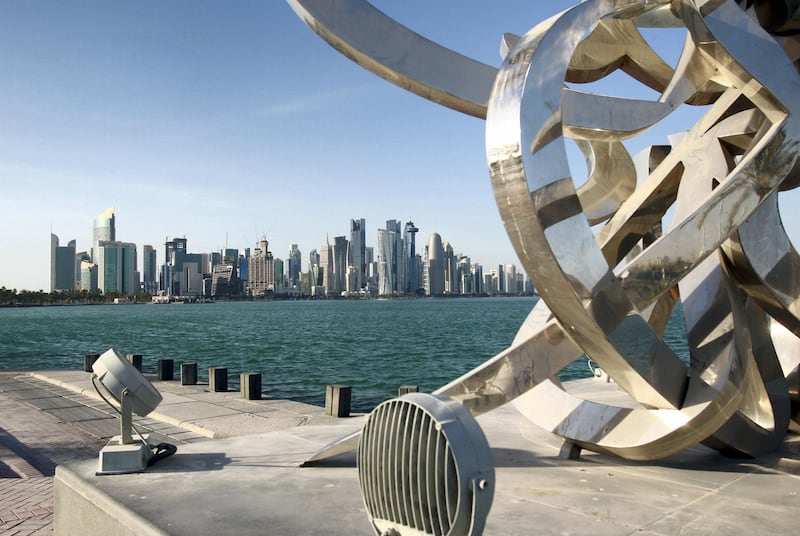Qatar has been forced to repatriate significant sums from its sovereign wealth fund to shore up its struggling economy, which continues to experience the impact of an economic and political boycott by its Arabian Gulf neighbours and other countries.
Ali Shareef Al Emadi, the country's finance minister, told the Financial Times that the Qatar Investment Authority, whose assets under management are estimated to stand at about US$300 billion, had brought back more than $20bn into the country since the stand-off with its neighbours began in June, but denied it had to make asset sales to raise the money.
"We are not liquidating anything," Mr Al Emadi told the FT. "What we have done is taken some of our liquidity from outside to inside. This is through the ministry of finance and the QIA, which is very normal in this kind of situation. The measure we have taken is much more of a pre-emptive and precautionary measure."
_______________
Read more:
[ Qatar may sell trophy assets amid dispute with Arabian Gulf countries ]
[ QIA trims Tiffany stake in latest selldown amid economic crisis ]
[ Qatari investors sell stake in Luxembourg bank to Chinese investors ]
_______________
Mr Al Emadi denied that the QIA’s recent stake reductions of prominent assets such Credit Suisse, Rosneft Holdings and Tiffany & Co were related to the crisis.
Bloomberg reported earlier this month that the QIA has hired advisers for further asset sales, but has not yet decided what to sell.
Ratings agency Moody’s Investors Service estimated last month that the country had burnt through $38.5bn of its financial reserves in June and July.
“To me it means banking system liquidity in Qatar needs support,” said Sanyalaksna Manibhandu, head of research at NBAD Securities.
“The cost of borrowing, credit underwriting and the amount of funds available for the risk are suffering in Qatar.”
Qatar’s banks had their outlook downgraded to negative from stable by Moody’s in August amid weakening operating conditions and continued funding pressures facing lenders in the wake of a political crisis between the sheikhdom and neighbouring countries that include Saudi Arabia and the UAE.
The two countries, together with Bahrain and Egypt, cut ties with the country on June 5, accusing Doha of supporting terrorism, a charge it denies.
There have been fears that the Gulf states opposing Qatar may withdraw deposits from the country’s banks, pushing the cost of borrowing higher. So far those concerns have not materialised and Qatari authorities have been adamant they have the financial clout to sustain capital flight stress such a scenario may produce. Mr Al Emadi has said repeatedly that his country’s banking system was stable and had ample reserves of cash.
Despite government assurances about being able to meet the challenges to its economy, Qatar is set to continue to tap its foreign currency reserves and borrow abroad to support its economy, to stem an economic slowdown.
“The latest Qatar Central Bank data showed that the pace of foreign deposit outflows started moderating from August, against the June and July levels,” said Monica Malik, chief economist at Abu Dhabi Commercial Bank. “The pace of outflows will likely moderate further going forward.”
“The critical factor for Qatar going forward is rising foreign fund for the investment programme, so as not to deplete FX reserves further, especially liquid assets.”






